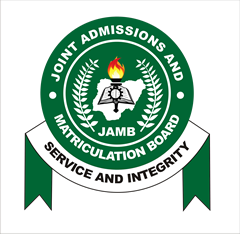
A. Type Green
B. Type Purple
C. Type Red
D. Type Yellow
For More Quiz Questions click here to download Global Quiz on Google PlayStore
A. different traditional religions with some elements of similarities
B. completely different religious practices
C. the same traditional religion
D. the same religious manifestations with common deities.
For More Quiz Questions click here to download Global Quiz on Google PlayStore
A. supernatural and natural world co-exist
B. natural and supernatural worlds are antagonistic
C. supernatural world controls the natural world
D. supernatural world exploits the natural world.
For More Quiz Questions click here to download Global Quiz on Google PlayStore
A. influence of Islam over Bori spirits
B. influence of Christianity over local oracles
C. decline of the interest in traditional religions
D. influence of non-traditional religions.
For More Quiz Questions click here to download Global Quiz on Google PlayStore
A. Prayer only.
B. Divination.
C. Sacrifice only.
D. Rituals.
For More Quiz Questions click here to download Global Quiz on Google PlayStore
A. Nigerians have access to foreign books only
B. Nigerian undergraduates do not read textbooks
C. Nigerians read foreign and indigenous books alike
D. Nigerians read mostly foreign books
For More Quiz Questions click here to download Global Quiz on Google PlayStore
A. Nigerians prefer reading foreign books
B. foreign books attracts more buyers
C. indigenous books are sometimes not available
D. the low quality of indigenous books.
For More Quiz Questions click here to download Global Quiz on Google PlayStore
A. is highly interesting and captures attention
B. is of high quality to the writer
C. attracts many indigenous and foreign readers
D. is widely acknowledged by many authors
For More Quiz Questions click here to download Global Quiz on Google PlayStore
A. lack of teaching aids among students
B. low purchasing power
C. low quality of books
D. lack of sufficient time
For More Quiz Questions click here to download Global Quiz on Google PlayStore
A. Nigerian Literary Writers
B. Nigerian Publishers and International Awards
C. Poor reading Culture in Nigeria
D. Why Nigerian Lecturers Sell Handouts.
For More Quiz Questions click here to download Global Quiz on Google PlayStore
About Joint Admissions and Matriculation Board JAMB
By 1974, there were seven (7) Federal Universities in the country. Every one of these
existing universities conducted its own concessional examination and admitted its students.
However, this system of admission revealed serious limitations and quite often, waste of
resources in the process of administering the concessional examination especially on the part
of the candidates. The general untidiness in the uncoordinated system of admissions into
universities and the attendant problems were sufficient cause for concern to the committee
of vice - chancellors. These problems had assumed new dimension when by 1976, the then federal
military government, under the leadership of General Olusegun Obasanjo, established six (6)
additional universities. Consequently, the government set up a national committee on university
entrance under the chairmanship of Mr. M. S. Angulu.
The Committee was specifically requested to consider the possibility of setting up a Joint
Matriculation Board.The Committee recommended the setting up of two (2) bodies, the
Central Admissions Board and the Joint Matriculation Board. The Federal military
government accepted some of the recommendations of the committee and set up the
Joint Admissions and Matriculation Board. The legal instrument establishing the Board
was however promulgated by the act (no. 2 of 1978) of the Federal Military Government on
13th February, 1978.
By August 1988, the Federal Executive Council amended decree No. 2 of 1978 to empower the Board
to conduct matriculation examinations for entry into all polytechnics and colleges of education
in the country and to place suitably qualified candidates in the available places in these
institutions.
The amendments have since been codified into decree No. 33 of 1989, which took effect from
7th December, 1989.












